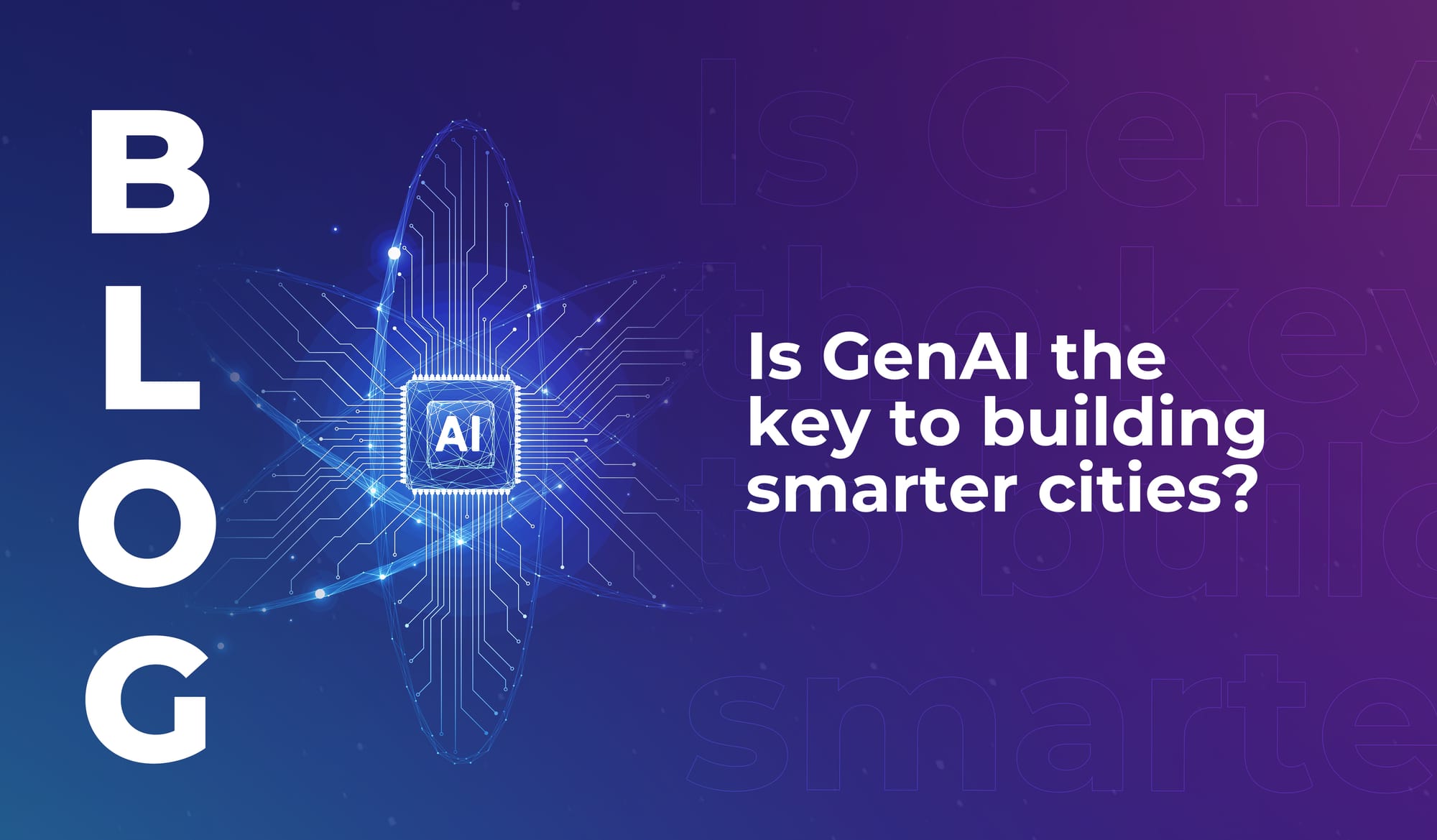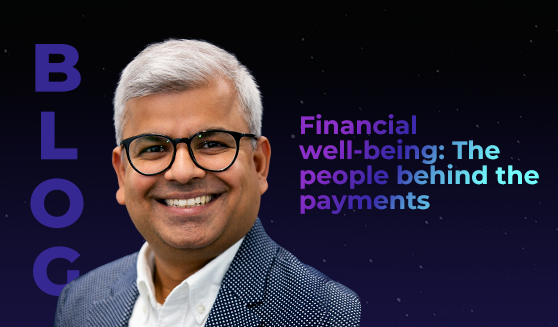
Is GenAI the key to building smarter cities?
Learn how generative AI is unlocking the true potential of digital twins – to make smart cities more efficient, inclusive, and citizen-focused.


Who are the human beings beyond the payment systems you use every day? If you’ve ever wondered about the people behind the payments, you’re not alone – we’re endlessly curious about the minds and ideas that shape the way we live our lives. And in today’s digital culture, payments are a big part of how we live our lives.
And it’s going to become an even bigger part of how we navigate our world. According to the 2022 McKinsey Global Payments Report, sustainable global transaction banking is still in its early stages, with a 15 to 20% potential for annual growth. Research suggests that demand for sustainable, international transaction products currently ‘far exceeds’ supply – so there’s a clear need for growth in solutions that meet consumer demand for convenient global transactions with a low carbon footprint.
#LEAP23 speaker Dr. Ritesh Jain (Co-Founder of Infynit) is one of the fintech and financial inclusion experts working to create new payment products that work for customers. We caught up with him to get the inside scoop on a perspective-changing payments solution before it hits the market.
“I love to see the smile on people’s faces. I want to create an impact and bring value to people’s lives. The most satisfying thing for me is adding value to people’s lives. The best way I could think of is educating people about finance and inculcating good financial behaviour for the financial well-being of individuals.”
“Infynit has been focused on strategy, building products, synergies and core team. The product is in beta, and building up product to launch in the better part of 2023. There are some propositions on the table with large financial institutions, building synergies for lending which will enable regional banks and other financial institutions with nil/less credit card penetration to get entry to the market.
“I have been focused on bringing the right people on the team – a CEO of a payments company, the CTO of a prominent fintech, a former head of risk and compliance from large financial institutions, etc.”
“Everything evolves and revolves around payments in the financial world, and if financial services are the heart of the economy, payments are the blood flowing through it. Digital & Contactless Payments have forever changed financial services, customer experience and fintechs. The ease of making payments has fuelled growth in payment volumes and economic development and removed significant friction for customers. It all started with UPI (Unified Payments Interface) in India, which has changed the face of digital payments worldwide; UPI is the epitome of digital payments and placed India as a leader in digital payments worldwide.”
“Regarding the Award at Singapore Fintech Festival, we’ve won in the most innovative and promising fintech category and are recognised by others for making a difference in the financial sector. Still, we’re yet to launch our product in the market.
“On the other hand, Yes, that’s right, credit cards are the best financial products built in the history of financial services. Credit cards provide 30-45 days of interest-free credit, with extra protection on purchases, rewards, etc.; however, outstanding credit card debt is increasing in developed economies.
“It will continue to grow in developing countries due to a lack of financial literacy, multiple credit products, and complicated terms and conditions that makes it difficult for a customer to manage various credit products and end up paying late payments fee and higher interest rates on credit cards. The UK [for example] has over 60 Bn outstanding credit card debt, with 66mn credit cards in rotation for the overall 60mn UK population. Over 78% of people need to learn when they make minimum payments on credit cards, and they incur higher interest rates. And that’s in a developed country. Infynit is focused on humanising the credit card experience for the customers.”
“For a start, Infynit is focused on removing friction for customers to manage their current credit cards; paying their bills on time; teaching good financial behaviours in customers by rewarding them for paying their bills on time; and facilitating credit at lower interest rates to get customers out of their debt cycle sooner.”
“Making a difference in people’s lives, creating a broader impact, focusing on emerging markets and addressing the challenges related to financial inclusion and financial literacy while working with regulators and institutions for the future of finance, fintechs and payments.”
Thanks to Dr. Ritesh Jain at Infynit. Discover LEAP to learn more.

Learn how generative AI is unlocking the true potential of digital twins – to make smart cities more efficient, inclusive, and citizen-focused.

The smart cities of the future will use tech to lower emissions, cut urban temperatures, and improve quality of life in highly populated areas.

Discover the cities that rank highly for smart city preparedness, and learn why locally relevant innovation is more important than cutting-edge tech.

Learn how generative AI is unlocking the true potential of digital twins – to make smart cities more efficient, inclusive, and citizen-focused.

The smart cities of the future will use tech to lower emissions, cut urban temperatures, and improve quality of life in highly populated areas.

Discover the cities that rank highly for smart city preparedness, and learn why locally relevant innovation is more important than cutting-edge tech.